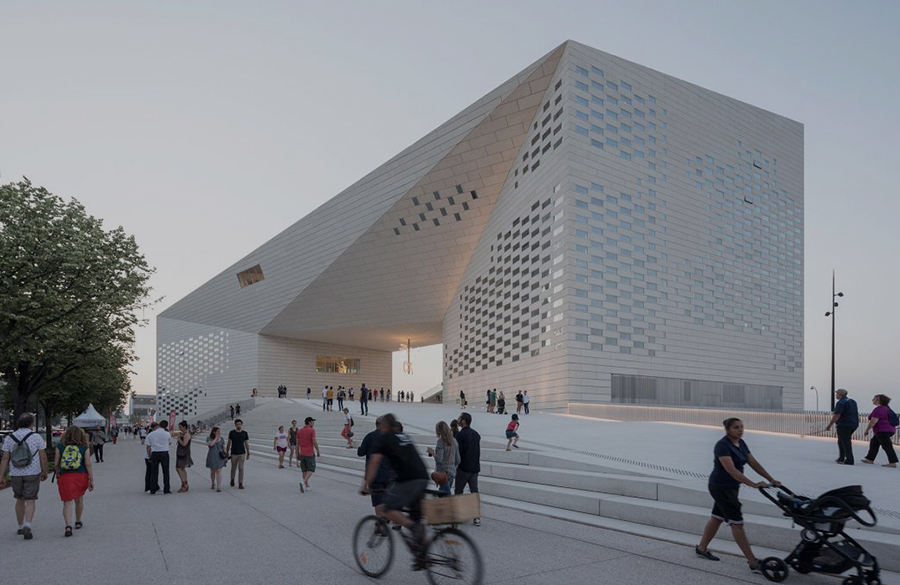What Role Does Architecture Play In Designing Sustainable Cultural And Arts Centers?

When you think of architecture, what comes to mind? Perhaps it's skyscrapers reaching towards the sky or perhaps it's a cozy little cottage nestled in the woods. Whatever your initial thoughts, architecture plays a critical role in shaping the world as we know it today.
Architecture isn't just about constructing buildings, it's about creating functional and aesthetically pleasing spaces that people can live and work in. But, what exactly is the cultural role of architecture and how does it affect our daily lives?
The Role of Architecture in Shaping Culture
Architecture is one of the most visible forms of culture, and it has the power to shape communities, inspire creativity, and influence social behavior. Some ways architecture has influenced culture include:
1. Historical Preservation
Architecture also plays a monumental role in preserving cultural heritage. Buildings are often seen as symbols of the past and the cultures that created them. Through preservation efforts, historic buildings can be encoded as cultural heritage for future generations. Therefore, these buildings can be viewed as a gateway for exploring and understanding a culture.
2. Environmental Influence
Buildings also influence the environment in which they are built. Different architectural styles embody different cultural values. For example, open spaces in buildings can reflect a culture's openness to social engagement and interaction. The materials used in construction can communicate a culture's relationship with the natural environment.
3. Social Interaction
Architecture can also be designed to promote social interaction. For example, the positioning of benches in a public park encourages communication while providing a space for relaxing.
4. Cultural Expression
Architecture allows for cultural expression, with different styles of architecture becoming synonymous with different cultures. For example, the pyramids of Egypt are closely associated with Egyptian culture, just as Gothic cathedrals are associated with European cultures.
Why is Architecture Important?
Architecture is important as it has the power to shape how people interact with the spaces around them. A well-designed building can be more than just an aesthetically pleasing space, it can also help improve the quality of life for those who frequent it. The importance of architecture lies in:
1. Promoting Energy Efficiency
The design of buildings influences their energy efficiency and has a direct impact on the cost of living for those who live and work in them. A well-designed building can reduce energy use, and therefore operating costs, while promoting sustainable living and helping to build a more environmentally friendly community.
2. Encouraging Social Interaction
As we mentioned earlier, architecture can be designed to encourage social interaction. Whether it's the placement of benches or the layout of a community center, well-designed architecture can help foster a sense of belonging and community.
3. Accurately Reflecting Our Needs
Buildings that are designed to accommodate our specific needs can help improve our quality of life. Being able to move about a space effortlessly or having enough space to work better influences how we interact with our environment and the people around us.
4. Creating a Sense of Place
Architecture plays a critical role in creating a sense of place. This inclusiveness provides a framework for our daily lives and contributes to the well-being of those who live and work in the areas we inhabit.
FAQ
What is the Cultural Role of Architecture?
The cultural role of architecture involves the influence of buildings on culture. This includes social interaction, historical preservation, environmental influence, and cultural expression.
Why is Architecture Important?
Architecture is essential as it can help promote energy efficiency, encourage social interaction, accurately reflect our needs, and create a sense of place.
How Does Architecture Influence Our Daily Lives?
Architecture influences our daily lives by providing spaces that promote social interaction, reflect our needs, and create a sense of place. It can also help promote sustainability through energy-efficient building design.
What Makes Good Architecture?
Good architecture is a combination of aesthetics and practicality. It should take into account the needs of those who will be using the space, promote sustainability, and be pleasing to the eye.
In conclusion, architecture plays an essential role in shaping our culture and environment. Whether it's designing buildings that promote energy efficiency, creating spaces that encourage social interaction, or preserving historical landmarks that inspire a sense of appreciation for our past, architecture influences our daily lives and the world around us.




Post a Comment for "What Role Does Architecture Play In Designing Sustainable Cultural And Arts Centers?"